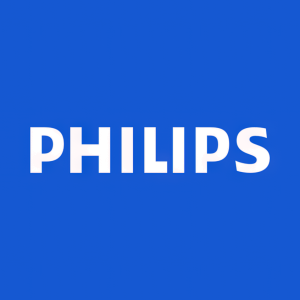Philips Visual Patient Avatar pioneers at-a-glance patient data for faster, better decision-making in the operating room
October 13, 2023
Animations, colors, and shapes help to improve poor situational awareness, which is responsible for
Amsterdam, the Netherlands – Royal Philips (NYSE: PHG, AEX: PHIA), a global leader in health technology, today announced the launch of Visual Patient Avatar, a revolutionary new monitoring solution that translates critical, yet complex patient data into a straightforward visual design as an easy-to-understand avatar display.
In today’s operating rooms (ORs), time constraints and information overload contribute to poor situational awareness, which is responsible for
A uniquely inspired design to improve situational awareness
Visual Patient Avatar was designed in partnership with two clinicians at the Visualization Technology Research Group at the Institute of Anesthesiology, University Hospital of Zürich. The inspiration for Visual Patient Avatar came from a hobby of the two clinicians, flying airplanes. During flights, an airplane’s dashboard uses synthetic vision technology to share straightforward illustrations that mirror flight environments. This visual representation of what is going on around them has been found to help pilots confidently make flight-related decisions. The clinicians saw the benefit of deploying a similar visual approach to patient monitors, believing that presenting data and information in a simple, visual way that has a logical commonality to the patient could help reduce human error in the OR.
“Created by anesthesiologists for anesthesiologists and nurse anesthetists, the intentionally simple design of Visual Patient Avatar is having a profound impact on clinical confidence and addressing cognitive overload,” said Christoph Pedain, General Manager, Hospital Patient Monitoring at Philips. “By helping clinical care teams make timely decisions without losing their cognitive focus, they can prepare for what may come next – improving patient outcomes and saving lives.”
Proven results in the real-world setting
The launch of Visual Patient Avatar is the latest example of Philips’ long-standing commitment to providing clinicians with reliable clinical decision support. To ensure the design of the Visual Patient Avatar would provide clinicians with the support they need in their daily roles, Philips and University Hospital of Zürich together conducted studies with over 150 clinicians in two Swiss hospitals to validate and refine Visual Patient Avatar using a range of proven methods. Key findings include:
- Compared to the identical conventional monitoring scenarios, Visual Patient Avatar more than doubled the number of vital signs participants could recall after 3- and 10-second looks at the monitor. [2]
- Visual Patient Avatar increased the percentage of perceived vital signs by
57% when viewed for 10 seconds, and the perceived workload for the task decreased by12% . [3] - During the first use of Visual Patient Avatar,
73% of all vital sign information was correctly identified. [4]
“Both flying planes and caring for patients involve continuous evaluation of critical parameters in high-stakes environments,” agreed David Tscholl, MD and Christoph Nöthiger, MD, consulting Anesthesiologists at University Hospital of Zürich. “As licensed pilots and anesthesiologists, we know the impact that situational awareness has on the successful outcome of our tasks and the safety of those who are affected by our work. In the air and in the OR. We had a vision to simplify the way critical information is presented in clinical settings and working with Philips to help bring this vision to life is sure to help revolutionize care.”
On Sunday, October 15 from 12-12:30 pm PST at the exhibit hall Center Stage, the co-creators of Visual Patient Avatar, Drs. David Tscholl and Christoph Nöthiger of University Hospital of Zürich, will present data highlighting Visual Patient Avatar's effectiveness at the American Society of Anesthesiologists conference in San Francisco (October 13-17, 2023).
Visual Patient Avatar will be available as an option on select IntelliVue patient monitors in 185 countries. For more information on Philips Visual Patient Avatar, please visit www.philips.com/visual-patient-avatar.
[1] Schulz et al. BMCA. 2016, Anesthesiology. 2017.
[2] MC Anesthesiol. 2016;16(14) doi: 10.1186/s12871-016-0172-7 2 Tscholl DW, Handschin L, Neubauer P, et al. Using an animated patient avatar to improve perception of vital sign information by anesthesia professionals. British Journal of Anaesthesia. 2018;121(3):662-671. doi: 10.1016/j.bja.2018.04.024
[3] Garot O, Rossler J, Pfarr J, et al. Avatar-based versus conventional vital sign display in a central monitor for monitoring multiple patients: a multicenter computer-based laboratory study. BMC Medical Informatics and Decision Making.2020;20(26). doi.org/10.1186/s12911-020-1032-4
[4] 6 Wetli DJ, Bergauer L, Nothiger CB, et al. Improving Visual-Patient-Avatar Design Prior to Its Clinical Release: A Mixed Qualitative and Quantitative Study. Diagnostics (Basel). 2022;12(2):555.5. doi.org/10.3390/diagnostics12020555
For further information, please contact:
Meredith Amoroso
Philips Global Press Office
Tel.: +1 724-584-8991
E-mail: meredith.amoroso@philips.com
About Royal Philips
Royal Philips (NYSE: PHG, AEX: PHIA) is a leading health technology company focused on improving people's health and well-being through meaningful innovation. Philips’ patient- and people-centric innovation leverages advanced technology and deep clinical and consumer insights to deliver personal health solutions for consumers and professional health solutions for healthcare providers and their patients in the hospital and the home. Headquartered in the Netherlands, the company is a leader in diagnostic imaging, ultrasound, image-guided therapy, monitoring and enterprise informatics, as well as in personal health. Philips generated 2022 sales of EUR 17.8 billion and employs approximately 71,500 employees with sales and services in more than 100 countries. News about Philips can be found at www.philips.com/newscenter.
Attachments
- Philips Visual Patient Avatar in the OR
- Infographic: Visual Patient Avatar: A new way to see patient vitals takes shape








